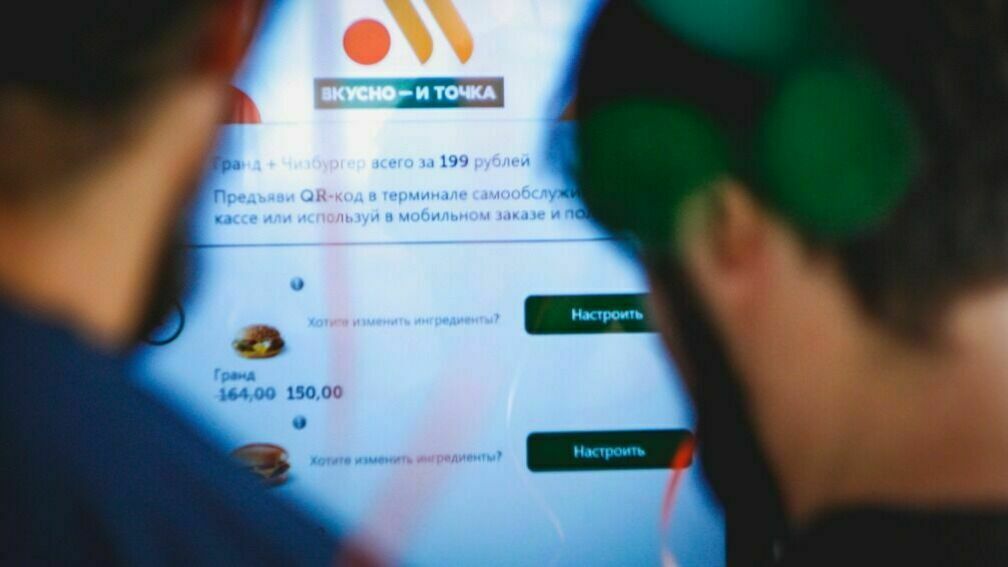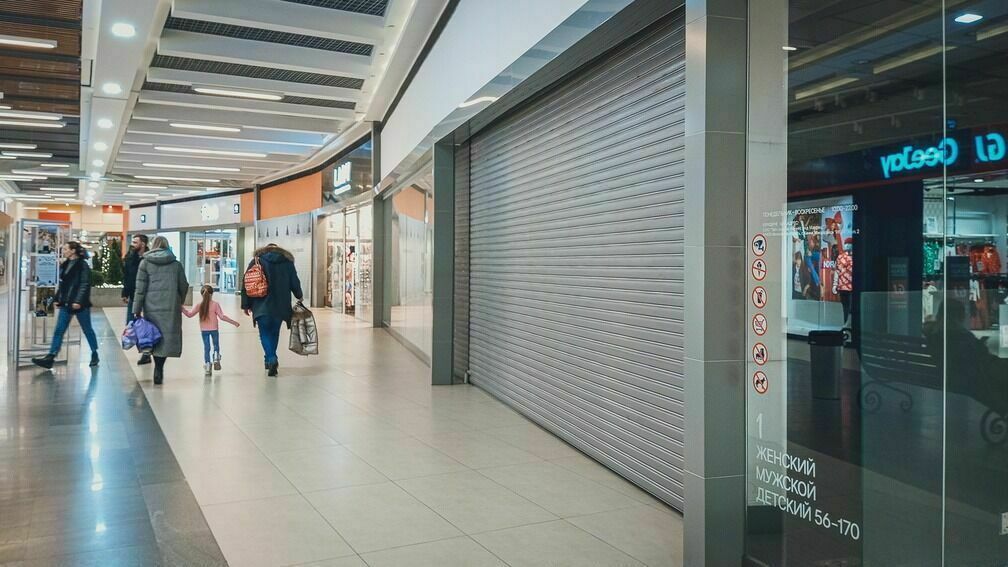Posted 20 января 2023, 09:25
Published 20 января 2023, 09:25
Modified 20 января 2023, 09:49
Updated 20 января 2023, 09:49

"Tasty and That's It" found a way not to pay McDonalds debts
Alexander Dybin
According to the file of arbitration cases over the past year, the company "PBO System", which was previously called McDonald's LLC, received several lawsuits from the owners of shopping complexes and commercial areas.
Since June, the former McDonald's company, which conducted the business of the fast food chain of the same name in Russia, has been owned by Kemerovo businessman Alexander Govor and is developing a chain of restaurants "Tasty and That's It". This name replaced the famous McDonalds. After the suspension of the network in Russia. However, the company inherited not only restaurants and burger fans, but also claims from partners. Several shopping centers in Moscow, St. Petersburg and other cities of Russia, demand to recover from the successor of McDonalds the debt for the three-month downtime in which the restaurants left after the start of their own. For example, the Gagarinsky shopping mall in Moscow requires 1.2 million rubles, or the SC BREEZE company, which manages the largest shopping mall in St. Petersburg, the Gallery complex, requires more than seven million rubles. In total, several lawsuits worth more than 10 million rubles are currently being considered.
At the same time, some of these claims have already been considered and in none of the cases has the landlord won. In their requirements, shopping centers indicate that the restaurants have not worked for several months, which means they have not paid rent, since she counts on the turnover of the institution. If there is no revenue, there is no rent. At the same time, the shopping mall was asked to terminate the contracts and evict the already opened "Tasty and That's It", since the tenant changed the name.
In refusing, the courts refer to the norm of the federal law adopted in March 2022, which protects tenants who got out of control of foreign companies and changed the sign.
"Termination of the lease agreement concluded before February 24, 2022 inclusive, at the initiative of the lessor is not allowed if the lessee, in respect of whom the control of a foreign person associated with an unfriendly foreign state was terminated, changed the name, commercial designation or trademark", - one of the court decisions says, -"the need to consolidate the norm of such The reason for the content is due to the recent practice of suspending business in Russia, and these measures are aimed at preserving rental relations with tenants who, despite the current extraordinary situation, have the intention and opportunity to continue doing business in Russia with its rebranding".
At the same time, contracts with the McDonald's company (and now the PBO System) were concluded for 20-25 years, and the downtime lasted several months.
"1.5 months have passed from the date of suspension of activity to the date of filing the claim, 4 months or 1.7% of 20 years have passed before the date of resumption of activity," the court decision on another similar claim says. - The plaintiff's references to the continuing and unlimited nature of the violations were recognized by the court as unsound. Given that the contract is long-term and valid until 2031, the suspension of activity for 4 months cannot be considered significant."In addition, the court pointed out that the contracts are drawn up in such a way that they do not oblige restaurants to work, they only prescribe the use of premises for their intended purpose.
And to work or not is already the right of the tenant. Thus, landlords who have some claims will not be able to get rid of "Tasty and That's It" restaurants in the coming years, no matter how much they would like it.


More money is demanded from foreigners
Similar claims – to pay for a simple and break the lease agreement were made by the owners of the shopping mall and to other tenants representing brands leaving Russia. For example, several lawsuits have been filed against the company "Coffee Siren", which developed the Starbacks network. In the spring, the company announced that it would curtail its activities. In Russia, she had 130 coffee shops. But soon there was information that a new one would appear on the basis of the network - Stars Coffee. The project will be developed by musician Timur Yunusov, known as Timati, and restaurateur Anton Pinsky. However, they did not follow the path of "Delicious - and that's the point" when the new owner gained control of the Russian legal entity. According to the SPARK database, the owner of "Coffee Siren" is the Cypriot company SHAYA COFFEE LIMITED, there have been no changes in the founders in the Russian jurisdiction since 2010. The Cyprus offshore, in turn, was established by ALSHAYA HOLDINGS, a company registered in Bahrain. The new owners are indicated only by the new CEO Egor Salomatin, who took up the post in September 2022. He also runs the Arena company, which is co-owned by Yunusov and Pinsky, among others.
In the file of arbitration cases there are several lawsuits demanding payment of rent. Some of them have already been terminated due to the settlement agreement. Apparently, "Coffee Siren" prefers to pay the debt before the trial. One of the cases was terminated on the initiative of the plaintiff due to the fact that the debt for Starbacks was paid by the company "Restaurants of the South" from the Krasnodar Territory.
Interestingly, the amounts of claims to "Tasty and That's It" and "Coffee siren" are relatively small. Claims do not exceed 5-7 million. Despite the fact that the same McDonald's in 2021 showed a turnover of 72 billion rubles, and a profit of 2 billion. But for clothing brands that are also leaving Russia, the claims are of a completely different order. Thus, several lawsuits have been filed against H&M LLC (owned by the Swedish H&M Hennes & Mauritz Gbc), for example, from STOCKMANN SPB CENTER for 44 million rubles or from the Irkutsk company REALT GARANT for 80 million rubles. All lawsuits were filed after the announcement of the suspension of work. A decision has already been made on some of them. In particular, the company "MEARS" demanded $ 2.5 million as payment for the rental of premises for the store. But she refused the claim, for what reason and whether the plaintiff received something - it was not voiced. An interesting claim looks from a large shopping mall "Grivich" in Yekaterinburg. According to the file of arbitration cases, the legal entity demanded a large sum for the fact that during the pandemic the store sharply reduced sales, and because of this the rent fell, which is 7% of revenue. According to the shopping center, the store director intentionally did not import a large amount of clothes, which is why sales fell. But, despite the fact that the lawsuit was considered in 2022 against the background of news about the departure of H&M from the country and the unfriendly registration of the company, the court sided with the store.
"The actual revenue of the store from April to December 2021 amounted to 85 million rubles, and according to the calculations of the plaintiff, the estimated revenue should have been 429 million," the court decision says. - ... The lessor does not have the right to refer to the occurrence of losses, since, being in an equal position with the lessee, he agreed on the condition of payment from turnover and voluntarily assumed all the risks associated with it. In addition, the tenant's decision to reduce the volume of imported products for sale had a reasonable economic justification, namely, it was aimed at protecting himself from the next colossal losses that the tenant would have incurred by purchasing seasonal products, but not being able to sell it."Similar processes are underway in relation to the company "New Fashion".
This is the former ZARA CIS, part of the Inditex holding. He owns the brands Massimo Dutti, Zara, Pull & Bear, Oysho, Bershka, Stradivarius, Zara Home, Uterque. Lawsuits have been filed against both "New Fashion" and related "Pull and Bear CIS", "Oisho CIS", "Bershka CIS", "Stradivarius CIS". One of the landlords demanded a billion rubles from Zara as a lost profit, while the main debt was 32 million. As a result, the plaintiff refused the claims, apparently, having received some part of the money.